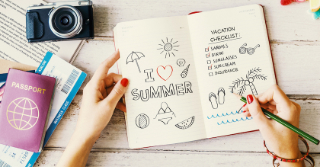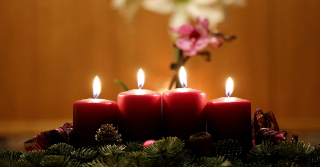Use these simple tips to keep your property safe while you’re away.
- Don’t advertise your absence.
Nothing says “Nobody’s home!” like a heap of newspapers and unopened mail on the front porch, an unmowed lawn, and social media posts that specify travel plans.- Place a hold mail order with the U.S. Postal Service. It typically takes less than five minutes. Your local office can withhold mail while you travel, and your mail carrier can deliver your held mail in a bundle the day you return with no added fees.
- Put your newspaper delivery on hold if you have a subscription.
- If you’ll receive packages from other delivery services, ask a friend or neighbor to collect them in your absence.
- Arrange for someone to mow your lawn if you’ll be gone for an extended period of time.
- Be discrete with social media. Would you indiscriminately send out fliers telling people you’ll be out of town? Social media can do just that, so avoid advertising your travel plans.
- Use home security hardware and apps.
A few simple home accessories can also help reduce risks, and some insurance policies even offer reduced rates for these added security measures.- Install motion-activated floodlights. Many options are available — even those that don’t require additional wiring.
- Secure sliding glass doors with physical barriers instead of relying solely on the typically flimsy locks. Such entries are common sites for break-ins.
- 34% of burglars waltz in through the front door, so protect yours with a sturdy hardened-steel deadbolt. It’s also prudent to consider upgrading the locks on your windows and other exterior doors, such as those attached to the garage.
- If you want to be more connected, many home security devices are available. You can control most from virtually anywhere via a smartphone app, allowing you to turn lights on and off, authorize home access to neighbors or caretakers, and alert you to smoke or heightened carbon monoxide levels. Some apps even allow you to view your home in real time.
If you’re on the fence about any of these due to their cost, review your homeowner's insurance policy or speak to your agent about potential incentives.
- Attend to appliances and other possible hazards.
Some tips are more about saving money than managing risks. The following suggestions include a sprinkling of both.- Set your water heater on “vacation” mode or turn it off to reduce utility bills while you’re away.
- Unplug small appliances as they tend to draw electricity when not in use and may pose fire risks.
- Give a neighbor a spare key for extenuating circumstances like burst pipes.
- Keep the bedroom, bathroom, and closet doors open to keep air circulating. For short trips, leaving a ceiling fan on in the reverse setting can also help keep air cool and fresh.
The importance of the above precautions varies based on the climate you live in, the layout of your home, and your neighborhood. Whatever your circumstances, a little extra thought can go a long way toward ensuring peace of mind!



